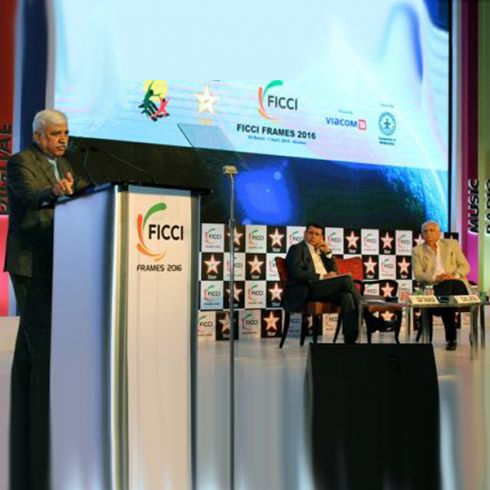
MUMBAI: A new set of rules have been submitted to the Cabinet for the next stage of FM radio auctions in Phase III.
This was revealed by information and broadcasting secretary Sunil Arora during a dialogue with Star India CEO Uday Shankar and CEO STAR India and veteran filmmaker Ramesh Sippy on day three at Ficci Frames 2016. Arora also claimed that the auction last year was ‘successful’.
(A total of 135 channels in 69 cities which already have FM channels were up for auction in the first stage. While the government claimed huge earnings, a total of 13 cities did not have any bids even after 125 rounds of bidding spread over 32 days. The e-auction commenced on 27 July 2015 and was completed on 9 September 2015 with the Frequency Allocation Stage.)
(97 channels in 56 cities became provisional winning channels with cumulative provisional winning price of about Rs 1156.9 crore against their aggregate reserve price of about Rs 459.8 crore – thus the summation of provisional winning prices surpassed the cumulative reserve price by Rs 697.05 crore or 151.58 per cent. The overall cumulative provisional winning price exceeded the total reserve price of the first batch - Rs 550.18 crore - by Rs 606.72 crore or 110.27 per cent.)
Meanwhile, Arora said The ministry remained committed to promoting ease of doing business in the media and entertainment sector.
He said the ministry was also guided by the ‘minimum government, maximum governance’ philosophy. Arora stressed that the ministry intends to play the role of a facilitator for the media and entertainment industry to flourish in the country.
“One of our primary objectives is to bring down the number of visitors to Shastri Bhavan to a trickle, move towards less regulation and facilitate India to become the hub of M and E industry”, Arora said.
Arora admitted that less than 10 per cent set top boxes being used in India were Indian made. However, he said the government and his Ministry were completely committed to the digitisation programme.
“We want the industry to look at this opportunity under the Make In India initiative and produce more STBs in India under the Electronics Manufacturing scheme."
Arora claimed that clearance for new TV channels had been expedited over the last six months under a liberalised regime. He said the home ministry had agreed to most of the suggestions made by the I&B ministry about liberalising several conditions.
Underlining the challenges for making India a global M&E hub, Arora said that the theatre density of the country left a lot to be desired. There was a need to increase the number of theatres in the country. On the taxation side, he said that the levies would be rationalized automatically once the GST is in place.
He said the National Film Archives of India was working towards safeguarding the heritage of Indian cinema and was in the process of digitising more than 1000 films.
He said a decision had been taken to set up the National Centre of Excellence in Animation, Gaming and Visual Effects in Mumbai. The Maharashtra government is providing a 25 acre land near the Film City in Goregaon for the institute.
The secretary also said the Government had approved the Rs 598 crore National Film Heritage Mission to preserve and promote India’s rich film and cultural heritage.
He also referred to the National Museum of Indian Cinema coming up in the Films Division Complex on Pedder Road with several interactive exhibits. “Prime minister Narendra Modi has taken a keen interest in this museum which is being curated by the National Council of Science Museums, Kolkata.”
Focusing on the ease of doing business, Arora said a Film Facilitation Office had opened in the National Film Development Corporation to function as a single window service for film related clearances. The secretary said an award had been instituted as part of the National Film Awards from this year to honour the states that are most film friendly. In 2016, Gujarat has been adjudged the most film friendly state, followed by Uttar Pradesh and Kerala.
Participating in the discussion, Shankar who is also Ficci entertainment panel chairman, expressed concern over the viability of stand-alone news channels. He also said the entry of fringe elements in the news broadcasting field for ‘ancillary facilities’ was affecting credibility.
Sippy expressed concern over low theatre density in India.